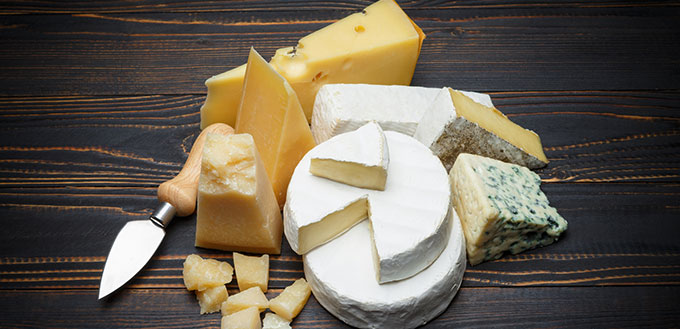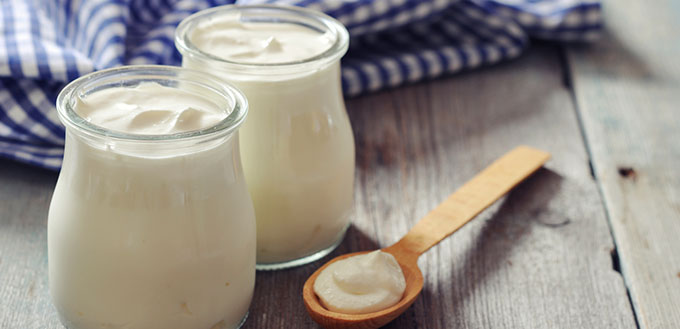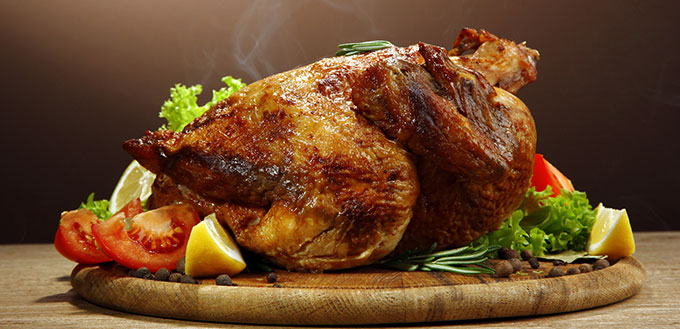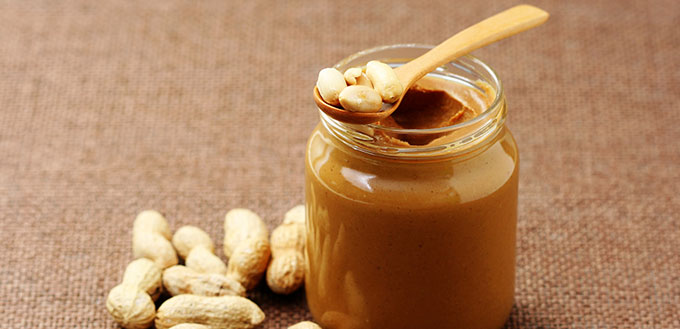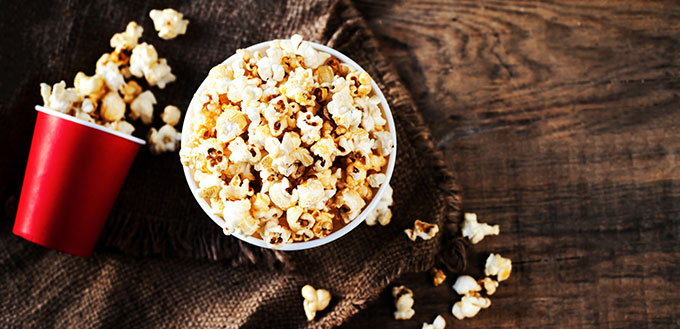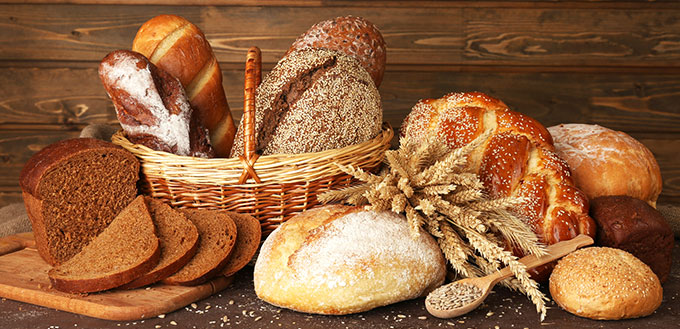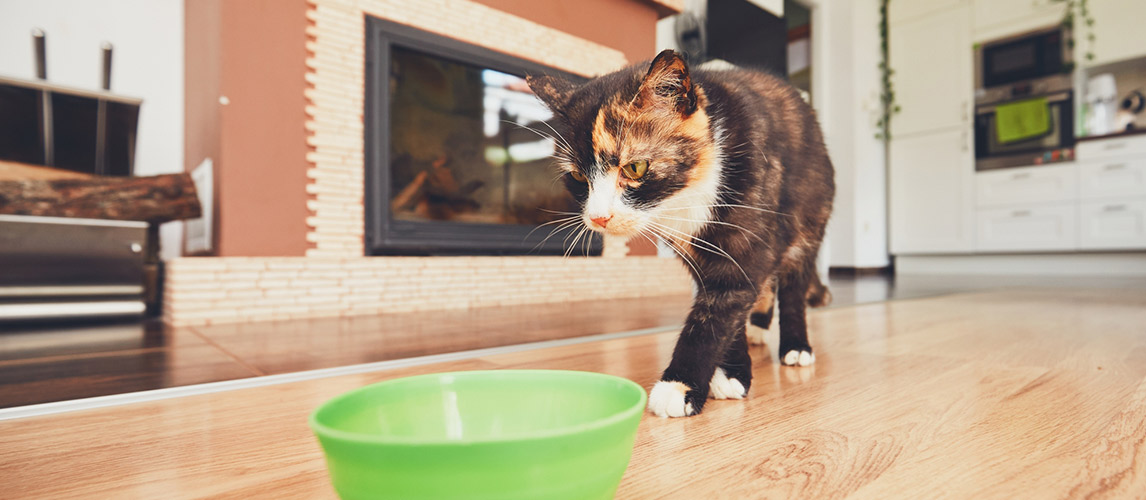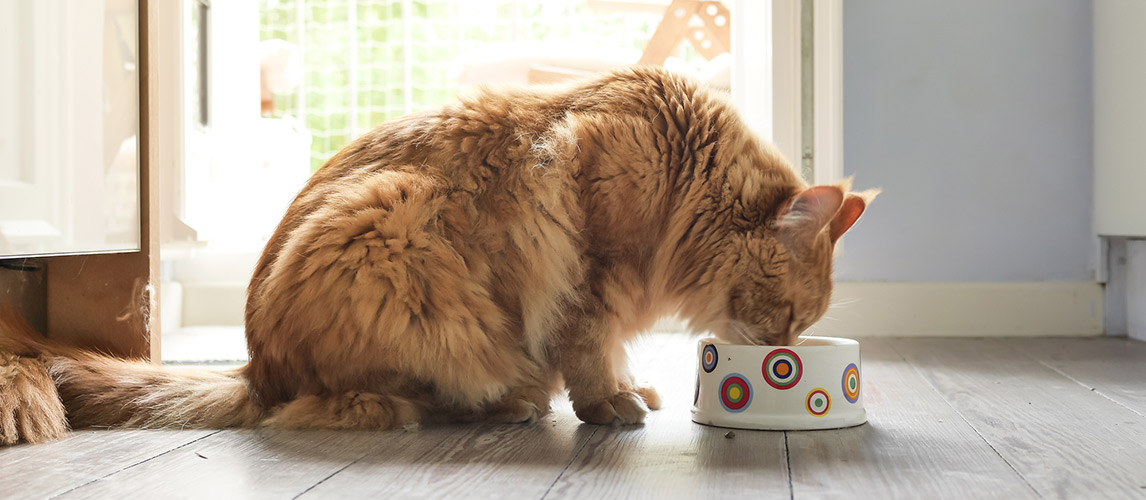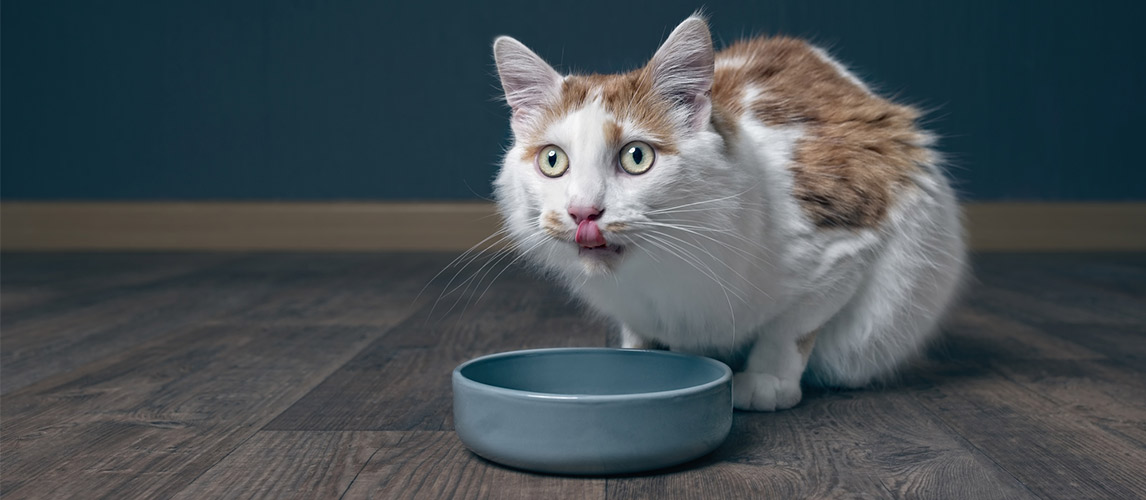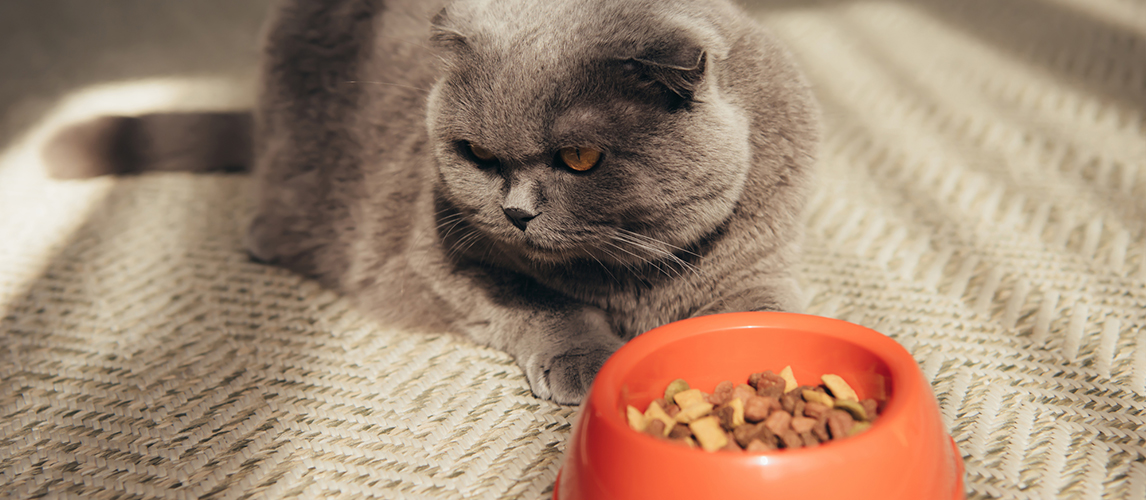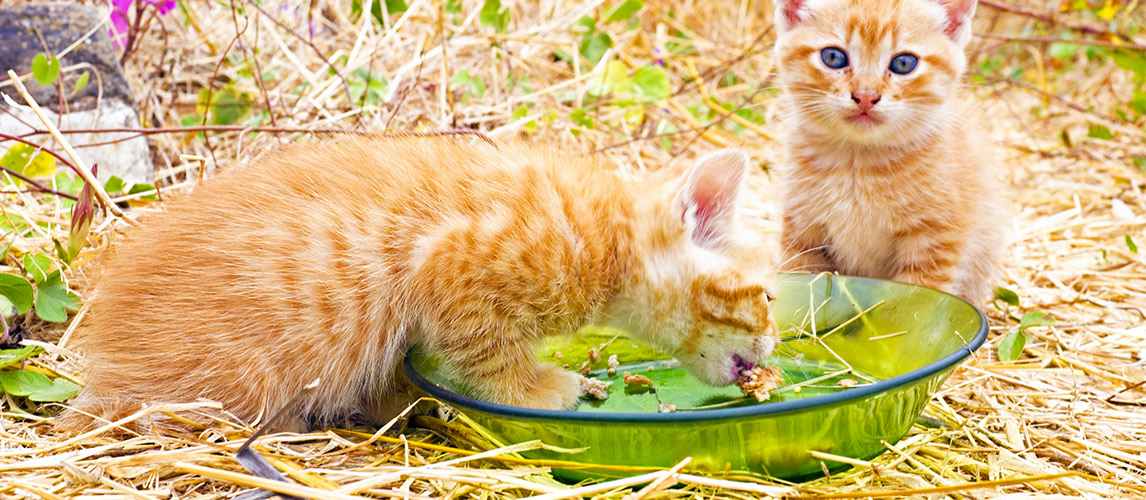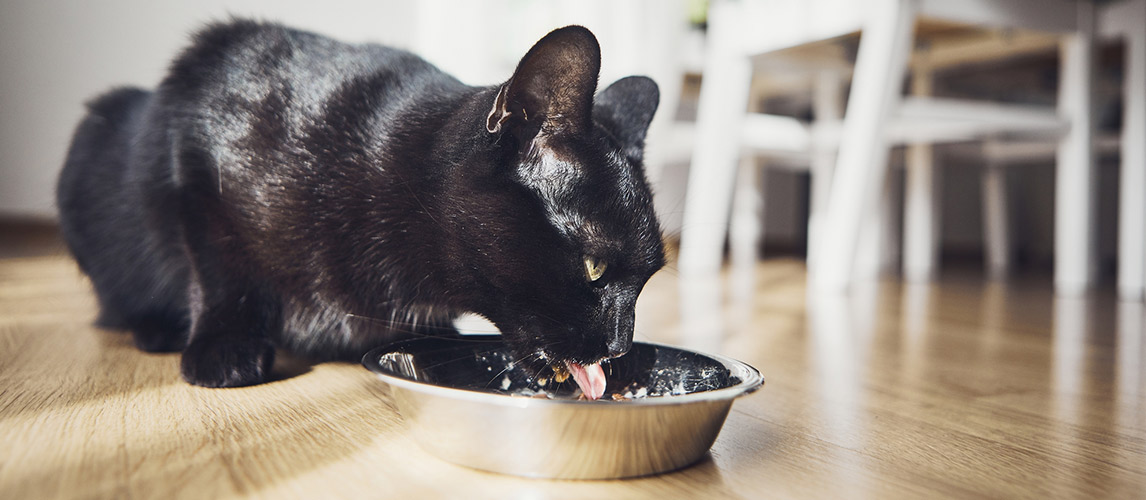Ensuring your cat gets all the nutrients they need from a balanced diet should be easy – simply pick the right quality cat food and your kitty should be happily satisfied. But as most pet parents know, finding the right type of diet isn’t always that simple, especially if you have a kit that seems to be more interested in what’s on your plate. The good news is, you can share some of your food and snacks with your cat without ruining their diet and health. But to do that, you need to know exactly which people foods are safe and nutritious for your feline companion and which are not.
Can Cats Eat Cheese?
Cats can eat cheese, but moderation is the key here and there are some cheese types they should avoid altogether. As a foodstuff, cheese is a good source of protein but that doesn’t mean it should be a regular addition to your kitty’s food bowl. Your cat should be getting their protein from a meat-based source, not cheese, but if they have a taste for it, only ever give it to them as a small, occasional treat.
One issue with cheese is that most cats are lactose intolerant, so eating anything dairy can cause unpleasant digestive issues, including diarrhea. Cheese is also full of fat, so not good for your cat’s weight management. And you should always look out for added ingredients such as dried fruit, spices, chili, garlic, or onions, all of which are often used to flavor cheese but can be toxic to pets. Cheese can also contain high levels of salt, which is not particularly good for cats as it can lead to health issues such as hypertension and kidney problems if consumed in large amounts.
If you must treat your cat to a little cheese, only ever give them a plain variety and keep an eye out for any adverse reactions. You can also consider ready-made cheese treats specifically formulated for cats as they have lower lactose levels to keep their tummies happy.
Can Cats Eat Chocolate?
The simple and short answer is no. Just like dogs, cats should never be given chocolate as it’s toxic and can be fatal for your feline. The cacao in chocolate contains an ingredient called theobromine which is poisonous for cats, and if eaten in large enough quantities can even lead to death. Dark chocolate along with unsweetened baking chocolate is the most dangerous, however, all types of chocolate – including white chocolate – can harm your cat. Eating chocolate can cause liver damage and ultimately liver failure as your cat’s body simply cannot break down theobromine. Chocolate also contains lots of fat and sugar, and sometimes a sugar substitute called xylitol too, all of which you want to avoid feeding your kitty.
The good news is that cats don’t experience sweetness in the same way as we humans do and so are less likely to develop a taste for chocolate, however that doesn’t mean you should be complacent. Some cats will eat chocolate as a treat if given a chance (such as when you are not looking), so it’s important to never leave it in easy reach. Depending on how much a cat eats, chocolate can cause an upset stomach, vomiting, a raised heart rate and diarrhea, as well as seizures and coma. If you suspect your cat has gotten their paws on some chocolate, take them to the vet – if they have eaten a larger amount and it’s caught in time, your veterinarian can treat them by making them vomit to remove the toxins from their stomach.
Can Cats Eat Eggs?
Eggs are actually safe for your cat to eat and can be a tasty cat treat but only as long as they are cooked. Cats should never be given raw eggs for the same reasons as humans as they can contract salmonella or E. coli. Symptoms of food poisoning in cats from eating raw eggs include vomiting, diarrhea, listlessness and fever and, depending on the severity, can prove fatal. Raw eggs also contain avidin, a protein that can interfere with the way your cat’s body absorbs the vitamin biotin which is needed for healthy coat and skin.
Cooked eggs with their shell removed are a different story and can provide your cat with essential protein and amino acids. Still, they should never replace their main protein meal but rather be given as an occasional treat or supplementation. Although safe for your cat to eat, cooked eggs do contain fat, including cholesterol, and will add extra calories to your pet’s diet, so portion control is essential. In any case, eggs should not be given to cats every day; you should also be aware of your cat’s potential food sensitivities or allergies, and kits with obesity or kidney issues should avoid eating them altogether.
Can Cats Eat Yogurt?
Since the majority of adult cats are lactose intolerant, you really need to exercise caution when giving your kit any kind of dairy, including yogurt. There’s actually no nutritional need to give your cat milk – in fact, once they grow out of the kitten stage, their systems are not designed to digest it and so consuming dairy can do more harm than good. Yogurt, however, is a little different as it contains ‘good bacteria’ or probiotics, making it easier on your cat’s digestive system. The reason for yogurt bucking the dairy trend when it comes to your feline is that it has live bacteria cultures called Streptococcus thermophiles and Lactobacillus bulgaricus, which break down lactose in lactic acid, making it kinder on your cat and their tum. Yogurt also contains calcium, which is good for their bones, as well as magnesium, which helps in the absorption of essential vitamins and minerals.
That all said, yogurt shouldn’t be an everyday part of your cat’s diet or fed in large amounts; it should only ever be given as a treat if your cat has a taste for it, and only ever in a small quantity. And the type of yogurt you choose is key – it needs to be plain, so no added ingredients such as sugar, artificial sweeteners or fruits, as these can load up the calories and ruin your kitty’s weight management. Plain Greek yogurt, which is also lower in lactose, is the best choice for an occasional creamy treat.
Can Cats Eat Tuna?
On paper, you’d think tuna would be a natural when it comes to your cat’s diet, but in reality, it isn’t the perfect feline food you’d expect. Yes, it’s a good source of protein, but it doesn’t contain all the nutrients cats need to be a key part of their daily, balanced diet. Add in the risk of mercury poisoning if eaten in too large a quantity and we would put tuna on the ‘in moderation’ cat feeding list.
Tuna is a deep-sea fish, so it wouldn’t be a natural part of your cat’s diet if they lived back in the wild, plus with today’s modern food processing, tuna can be a bit more problematic than you would think. Yes, canned tuna is a good source of protein and omega 3 fatty acids, but it can also contain high levels of salt and artificial additives. Also, tuna is often canned in oil, which will bump up the fat levels in your cat’s diet, making it unsuitable if they’re prone to obesity or have health issues. It is a good idea to see tuna as a tasty treat to occasionally reward your kitty rather than a food staple. Alternatively, you can choose a wet cat food that has tuna as the main ingredient so you can be sure their meal is balanced and nutritionally dense. If you do want to give a little real tuna as a treat to your cat, always opt for cooked or canned tuna, and ensure it is packed in water and not oil.
Can Cats Eat Bananas?
While fruits are not always the best choice for felines, bananas are amongst the few exceptions as they’re perfectly safe for your cat. In fact, they are a good source of potassium, which is needed for heart and kidney health. But, as with all cat-safe human foods, bananas should only be given to your cat occasionally as a treat, because nutritionally, there really is no need for felines to eat them. Let’s take a look at why you shouldn’t give bananas to your kitty very often.
First up, bananas are carb-heavy – and carbohydrates are not really an essential part of any cat’s diet. They are also full of sugar, which if eaten in large quantities, can lead to obesity issues and even diabetes in your pet. The banana peel is also problematic and should never be given to a cat as its fibrous nature can wreak havoc on their delicate digestion. Most cats won’t develop a ‘taste’ for sweeter foods but if a piece of banana takes your pet’s fancy then there should be no harm in giving them a very small amount once in a while. That said, it may be better to simply find a healthier, more cat-friendly treat you can reward them with more frequently.
Can Cats Eat Chicken?
As a high-quality source of protein, cats can most certainly eat chicken, but it needs to be prepared and cooked properly to ensure there are no issues when it comes to their health.
While healthy, ‘pure’ chicken should be given in controlling portions as an extra treat, and it should not replace your pet’s regular and nutritionally balanced wet or dry cat food. Very importantly, it should also be cooked and never given raw. As a source of protein, chicken is a good food to help build muscle and sustain energy. Poultry also contains vitamins and minerals such as selenium which can boost the immune system, as well as vitamin B6, which is crucial for regulating their blood sugar level. Chicken is also low in sodium and fat, so lean cuts of chicken will help if you are managing your kit’s weight.
But before you reach for your cat’s food bowl to add in a few slices of succulent chicken, there are some key rules you need to be aware of. Chicken should always be cooked ‘naked’ – that is free of added oils, seasonings or flavors and definitely not with onions or garlic, which are toxic for cats. Don’t leave on the skin if extra calories are the problem, and take out the bones as well as they can be a choking hazard. Finally, make sure the amount of chicken you give your cat is appropriate to their age, size and current weight.
Can Cats Eat Peaches?
Fruit is not an essential requirement for your cat’s health, but it can add extra fiber and nutrients as a juicy and tasty treat. But not all fruit is safe for your cat so it’s essential to know what you can and cannot give them. When it comes to juicy peaches, your cat is safe as they are not toxic, however, this doesn’t necessarily mean they are a treat you should offer on a daily basis. While peaches contain vitamins A and C, they are high in sugar, which is not good for your cat, and can cause a reaction if they are given too much in one go. Sugar from the fruit also runs the risk of weight gain and diabetes in your cat if it’s consumed on a regular basis. The fuzz on the peach skin may have pesticides on it and can also be an irritant to your cat’s mouth and stomach, plus the pit must always be removed and thrown away. Not only could a peach pit (also known as peach stone) be a choking hazard should your kit try to eat it, but it also contains a compound called amygdalin, which is actually a sugar-cyanide which can be toxic if your cat eats enough.
If you love peaches and want to share them with your kitty, we suggest you only give a very small amount of the peeled flesh once in a while. This said, it may be best not to give your cat any peach if they have never had it before as you don’t want them to develop a ‘peach-sweet’ tooth.
Can Cats Eat Cherries?
Although cherries are safe for your cat in small quantities, there are concerns to be raised about other parts of this fruit, including the leaves, stalks and pits, which may mean you may want to remove this fruit of your cat’s occasional treat menu. The cherry pit, leaves, and stem contain something called cyanogenic glycosides – or cyanide in layman’s terms – which is toxic for cats. Cyanide prevents the enzymes in your cat’s body from working properly, plus the amount of oxygen absorbed is reduced. Symptoms of cyanide poisoning in your cat include breathing difficulties, dilated pupils and pale or discolored gums which, if left untreated, can actually kill your cat.
However, the delicious soft flesh of a cherry is safe for your feline and can provide some nutritional value, including antioxidants that have anti-inflammatory properties. The challenge when it comes to cats eating cherries is ensuring they only eat the safe flesh and don’t come into contact with the pit, stalk or leaves. With this in mind, and the fact that your cat doesn’t need all that extra sugar that comes with the fruit, it’s probably best to avoid feeding cherries to your cat, even as a treat.
Can Cats Eat Peanut Butter?
While peanut butter is not on the list of foods that are poisonous to cats, the added ingredients and high sugar level that typically come with many store-bought types mean it’s not that healthy a treat. And unlike the way many dogs go mad for the nutty stuff, many cats really don’t have a taste for it.
As a food, peanut butter has no nutritional value for felines as cats are carnivores and meat and fish should be their main food source. Peanut butter also offers little in the way of vitamins and minerals your cat’s body can utilize, and with a high fat content, it is calorie dense, meaning it could be harmful to your cat’s waistline. Then there is the risk that your cat may have a nut allergy or at the very least, the ingredients in peanut butter may irritate their digestive system. And if you opt for the chunky variety, the lumps of nut could become a choking hazard for kittens.
However, if your kit has a taste for peanut butter and is not allergic to it, it’s perfectly okay to offer them an occasional lick here and there. But what you don’t want is for your cat to expect their peanut butter treat daily, and this isn’t just about the health concerns we mentioned above. Peanut butter is often used as bait for rodents which means that if your outdoor cat likes the taste, they could find themselves in a sticky, even dangerous situation.
Can Cats Eat Strawberries?
If your cat has swiped one of your strawberries, don’t worry as they are not toxic for felines and will do them no harm. But that doesn’t mean this delightfully sweet berry should be a regular on your cat’s dining menu. Yes, they do have antioxidant properties as well as a good amount of vitamin C, potassium, and folate. But if your cat is already on a nutritionally balanced cat food, then there is no need to add in this fruit. The problem with strawberries for your cat is the high sugar content, which although natural, can still be an issue for your cat if eaten regularly or in large quantities. Cats don’t have a sweet tooth and don’t digest the sugary stuff in the same way as people. As carnivores, their body doesn’t require so much sugar and too much will not only wreak havoc on their digestion and cause tooth decay but can also lead to feline diabetes. Symptoms of diabetes in cats include excessive thirst, needing to pee more often, reduced appetite, lethargy and vomiting. If you suspect your kit may be affected, get them checked out by your vet.
However, in general, a slice of strawberry every now and again should not cause any problems for your cat if they are otherwise healthy and not overweight.
Can Cats Eat Apples?
Yes, cats can eat apples, as long as it is only the peeled flesh they are offered as the rest of the fruit can be an issue for all felines. The seeds, in particular, are a no-no for cats as like many other fruit seeds, they contain cyanide, which is toxic for pets. And the harder core of the apple should be avoided too, as it can be contaminated by the seeds; not to mention, it can be too tough for your kit to digest. When thinking about giving your cat a sliver of apple, the best thing you can do is think whether it is of any benefit to them or not. Cats are not naturally sweet eaters, so that delicious crispy apple you like won’t be as tasty to your cat. And too much apple can raise the risk of weight gain and even diabetes over time.
There is some nutritional value for cats in eating apples though, as the fruit contains numerous vitamins and minerals, including vitamin C, K and fibrous pectin, which is a good digestive aid. However, your cat should be getting all the nutrients they need for good health from their daily wet or dry cat food. As with all the ‘cat-safe’ fruits in this guide, little and not very often is the only way to go if you feel the need to treat your cat with an apple. Always chop the apple flesh into small pieces so they are not a choking hazard for your cat, and never, ever give your kit the apple core.
Can Cats Eat Popcorn?
Read the label on your cat’s dry or wet food and you may well see corn listed in the ingredients list. As long as your kitty is not intolerant, this grain is a safe and nutritious addition to their diet. Field corn is rich in protein but also carbs and sugars and so should be eaten in moderation, as part of their carnivore-friendly balanced diet. So, what about popcorn, is this safe for your cat too? Well, popped corn is not toxic for your cat so if they have unexpectedly swiped a paw-full from your bowl on home movie night, there is no need to get them checked out by the vet.
However, that doesn’t mean popcorn should become a regular treat for your pet. The small, irregular size of each popped corn could mean they could easily become a choke hazard as your kit tries to eat them. And while the corn itself is ok to eat, the toppings can also be problematic. Sugar, salt, butter, spice, chocolate – your go-to popcorn flavoring will not be the best for your cat’s health. Too much processed sugary or salty popcorn can exacerbate health issues such as diabetes, obesity or kidney problems in your cat, and as a food source, popcorns have no real nutritional value. To be on the safe side, make sure your cat steers clear of your popcorn, and give them a healthy cat-formulated treat instead.
Can Cats Eat Blueberries?
Blueberries, known as a superfood for humans, are safe for cats to eat but won’t give them the same nutrient hit. The fiber, vitamin C and antioxidants found in blueberries could have some benefit for your kitty, but they should be finding these health-boosters elsewhere in their feline diet. However, you may find that the label on your cat’s food shows it contains blueberries or blueberry powder, which is a safe way to supplement their meal.
What may attract your cat to these little blue, fruity balls is their juicy taste and the fact that they’re just the right size to fit neatly in their mouth. The issue here is that blueberries contain sugar, which your cat simply doesn’t need. Raised amounts of sugar in your cat’s food could be detrimental to their health over time, raising their risk of developing feline diabetes. Too much sugar also means extra calories, which is not good if your cat is not that active as it could lead to them putting on weight. If you want to treat your cat, a couple of blueberries should be all they have, with each berry thoroughly washed to remove any possible pesticides on the skin. And make sure it is an occasional treat and not a regular way to reward your pet.
Can Cats Eat Dog Food?
If you are a multi-pet household and your cat occasionally has a taste of your dog’s food, you may wonder whether it’s safe. While having an odd mouthful of your dog’s meal is not going to harm your kitty, in the long run, dog food will simply not give your cat everything they need to thrive. Cats and dogs have different nutritional needs and so you should only ever give your feline companion cat food that is specifically formulated to promote their optimal health and well-being.
The reason is that unlike dogs, who are omnivores and can happily tolerate a plant and meat-based diets alike, your cat is an out-and-out carnivore that needs a much higher proportion of fish or meat protein in their food. They also require vitamin A as well as the amino acids taurine and arginine daily, which are often missing in dog-formulated food. Without high levels of protein plus the vitamins and minerals essential for felines, your cat’s condition will deteriorate over time, and the result will be seen in poor skin and coat health, low energy, lower muscle tone and poorer heart health. Their eyesight can also be affected if they don’t get enough of the cat-essential vitamin A. This means that, to be healthy, your cat needs their very own food specifically formulated for them. However, a small bite of their canine friend’s food here and there won’t hurt them.
Can Cats Eat Bread?
If you appear to have a carb-loving cat, a tiny amount of bread should be ok but there are certain factors to consider. Your cat is a lean, mean, protein-eating machine and so carbohydrates should be limited, and if possible, obtained through their main daily cat food meal. A small-sized corner of your morning toast or lunchtime sandwich should be ok as long as it is an occasional and not daily habit. And the size, age and general health of your cat should always be considered. As a carb source, bread can bump up the calories and as the average cat only needs around 250 calories a day, treats should never exceed 10% of their daily intake – so that’s no more than 25 calories in total. So, as you can see, too much bread can easily lead to weight gain.
While it may be tasty, bread offers no real nutritional benefits for cats and can actually affect their digestion, leading to bloating. If you make your own bread, be careful if your kit is around as the yeast in rising dough can be dangerous: it releases ethanol which can cause alcohol poisoning. If you do want to give your cat the occasional bready treat, keep it plain – white or wholegrain will do and with no added butter, spreads or sugary jams. And never offer bread that is flavored or has ingredients such as garlic, spices, chili or onions as these can actually be toxic for your pet.
Can Cats Eat Watermelon?
On a hot day, there’s nothing more cooling and delicious than an ice-cold slice of watermelon – and this can safely apply to both you and your cat. Watermelon is one of the safest fruits for your feline and can even give them some nutritious benefits that are lacking in many other human foods. The 90% water content of the melon flesh is a great hydrator, and for a kitty, can also be a very pleasant, wet textured item to eat. This means that offering a few chunks of watermelon in the summer is a clever way to up your cat’s water intake. As well as being super refreshing, watermelon also has some key nutrients your cat can take advantage of, including vitamins A and C and dietary fiber. But the trump card in the watermelon’s nutrition pack is lycopene, which is good for your cat’s bone and heart health.
That being said, there are a few caveats when it comes to giving watermelon to your cat, and the first is its sugar content, which is pretty high. For this reason, giving watermelon should be avoided if your cat has health issues, is overweight or suffers from diabetes. Also, the seeds in watermelon should never be given to your cat as, like other fruit seeds, they contain cyanide, which can be toxic for your pet. To make the most of watermelon, only ever give the peeled flesh to your cat as a treat, and never let it replace a constant supply of fresh, clean water or their main, nutritionally balanced cat food.
Can Cats Eat Avocado?
Increasingly popular, avocados are widely considered a superfood, thanks to their high antioxidant content and healthy oleic fatty acid content. Fresh-smelling, rich-tasting and versatile, avocados are now a staple in many folks’ kitchens, but are they as healthy for cats as they are for us? Well, yes and no. While the green flesh of the avocado is considered safe in small quantities for pets, the large seed, skin and stem are a real no-go as they contain a compound called persin, which can be toxic for your cat. Even a small amount of persin can cause an allergic reaction in your cat, and too much can prove fatal. So always keep your whole avocados stored clearly out of the way of any pets in your home.
If you ensure the seed and skin is removed and disposed of, you can give small amounts of avocado to your cat and they will benefit from the antioxidants. However, avos should not become regular treats for your cat due to their high fat content. The fatty acids and omega oils in avocados can be beneficial for your cat’s heart health thanks to their anti-inflammatory properties, but give them too much too often and any benefits will be wiped out by the negative impact of the fats. Too much fat can impact on your kitty’s digestive health and can cause diarrhea and other stomach issues, especially if your cat is older or of sensitive health.
Can Cats Eat Rice?
Eating plain rice can actually help boost your cat’s digestive health, especially if they are prone to tummy upsets or are of a more sensitive nature. This is why you will often find rice added to cat food formulated for digestive health. However, it is the type of rice that counts when it comes to deciding whether it is safe for your feline companion. Overall, it is probably best to limit rice to an occasional treat unless you are looking to settle your kit’s temporary stomach issues. And for overweight cats, rice is too carb-loaded and so best avoided altogether.
Rice actually offers no nutritional value to cats and while it is one of the least reactive grains for your pet, as a carb, it is not a natural part of a feline diet. If you are looking to give your cat a little rice to help their stomach, then always go for the plain option, boiled with no added salt. And if possible, opt for brown rice. Avoid any additives or extra ingredients as well, including spices, onions and garlic, as they can all be problematic and potentially toxic for your cat to eat. Portion control is also essential, as rice should not be the main component of your cat’s meal; we recommend no more than 25% of their total amount of food. As soon as your kitty’s stomach issues settle, make sure they return to their natural diet that’s rich in meat protein and limited in carbs for overall health and wellbeing.
Can Cats Eat Carrots?
Cats don’t need many vegetables in their diet as, if they are getting the right balance of protein and fats, they are getting all the essential nutrients for optimum health. However, there are some nutritional benefits to adding veggies to their diet – which you will often see on the ingredient label on their food. This said, not all vegetables are suited to the feline digestion and there are only a limited number of veggies that make the good list. Carrots, thankfully, are up there with the good vegs.
Carrots are a good source of some of the essential vitamins and minerals your cat needs, including vitamin A needed for eye health, as well as fiber required for healthy digestion. And as a snack, carrots are considered safe for your pet. But there are a few other rules to follow. Raw carrots can be hard for your cat to chew and can be a choking hazard if the pieces are too large, so always offer chopped, cooked and unseasoned pieces of carrots to your kitty. Moderation is also key as carrots contain sugar just as all other vegetables and fruits, which can be harmful to your cat if they have it in large quantities. Too much sugar raises your cat’s risk of developing diabetes and can have a negative impact on other health conditions they may have. Sugar can also irritate their digestion if they eat it too much and too often. Because of this, only ever offer carrots as a treat or as a small addition to their meal, and never as a replacement. Your cat is first and foremost a carnivore and really needs meat or fish protein at the heart of their diet for all-round health, happiness and vitality.
Sources:
- Ryan Llera, BSc, DVM, Feeding Times and Frequency for Your Cat, VCA Hospitals
- 7 Foods to Avoid Feeding Your Dog or Cat, American Veterinary Medical Association
- Cat Nutrition Tips, The ASPCA


